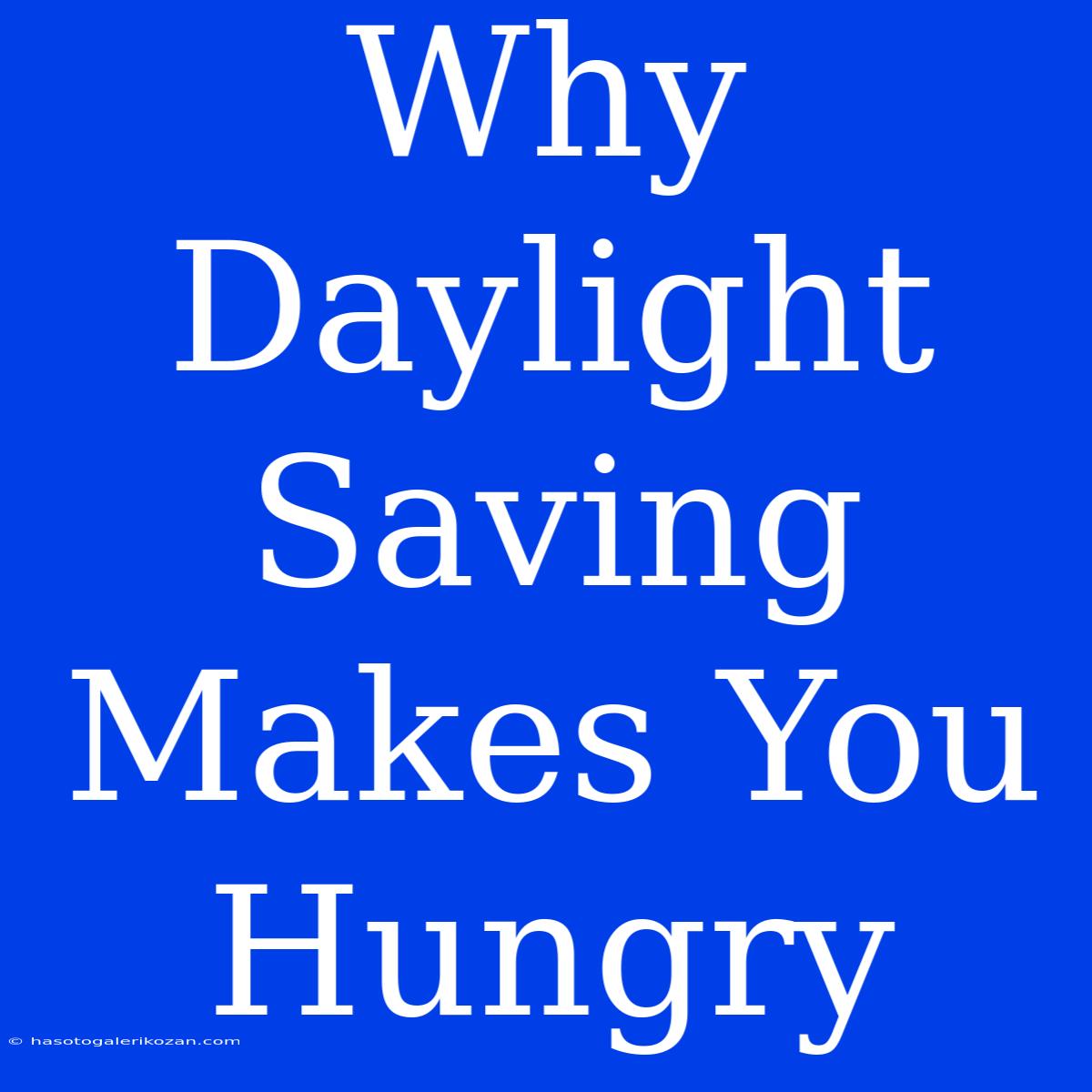Why Daylight Saving Time Makes You Feel Like a Hungry Monster
Ever noticed that you feel like you're constantly snacking during Daylight Saving Time? You're not alone! This annual time change can wreak havoc on your appetite, leaving you craving more food than usual. But why?
Here's the lowdown on how Daylight Saving Time throws your internal clock off and makes you feel like a hungry monster:
1. Disrupted Circadian Rhythm
Your circadian rhythm, also known as your internal clock, regulates your sleep-wake cycle and impacts various bodily functions, including your appetite. When you shift your clock forward an hour, you're essentially telling your body to stay awake longer. This can disrupt your sleep patterns, leading to sleep deprivation and hormonal imbalances that affect your hunger cues.
2. Reduced Melatonin Production
Melatonin, the sleep hormone, is crucial for regulating your appetite and energy levels. When you adjust to Daylight Saving Time, your melatonin production is suppressed, making you feel more alert and less sleepy but also increasing your cravings for sugary and fatty foods.
3. Increased Ghrelin Levels
Ghrelin, often referred to as the "hunger hormone," increases when you're sleep-deprived. The shift in your circadian rhythm can lead to higher ghrelin levels, tricking your body into thinking it's hungry even if it's not.
4. Decreased Leptin Levels
Leptin, the "satiety hormone," tells your body that you're full. However, sleep deprivation can decrease leptin levels, making it harder for your body to recognize when you've had enough to eat. This can lead to overeating and a constant feeling of hunger.
5. Craving for Comfort Foods
When you're tired and stressed, your brain seeks out comfort foods that provide a quick burst of energy. The disruption of your sleep cycle can lead to feelings of fatigue and stress, making you crave sugary snacks, processed foods, and fast food.
Tips to Combat Daylight Saving Time Hunger:
- Prioritize Sleep: Aim for 7-8 hours of quality sleep each night, even during the transition period.
- Maintain a Regular Sleep Schedule: Try to wake up and go to bed at the same time, even on weekends.
- Hydrate: Dehydration can often be mistaken for hunger. Make sure you're drinking plenty of water throughout the day.
- Focus on Whole Foods: Fill your plate with nutrient-rich foods like fruits, vegetables, lean protein, and whole grains.
- Mindful Eating: Pay attention to your body's hunger cues and avoid mindless snacking.
- Stay Active: Exercise can help regulate your sleep cycle and reduce stress levels.
- Limit Caffeine and Alcohol: These substances can interfere with your sleep and contribute to hunger pangs.
Remember, it takes your body a few days to adjust to Daylight Saving Time. Be patient, focus on healthy habits, and listen to your body's signals. You'll be back to your regular appetite in no time!
